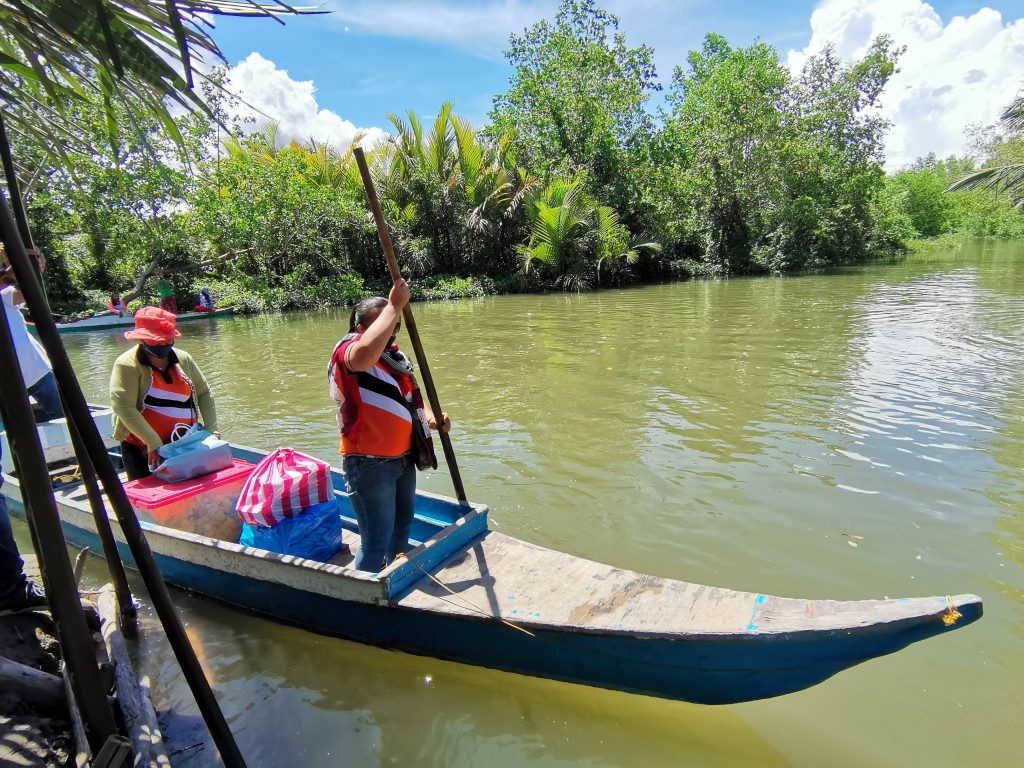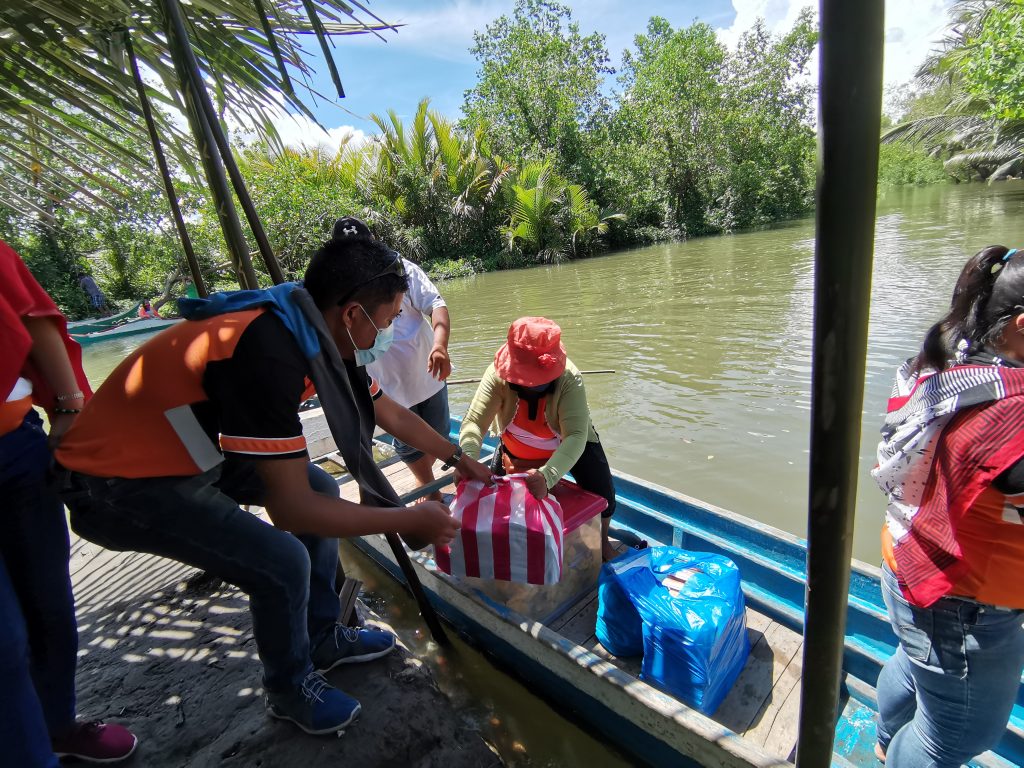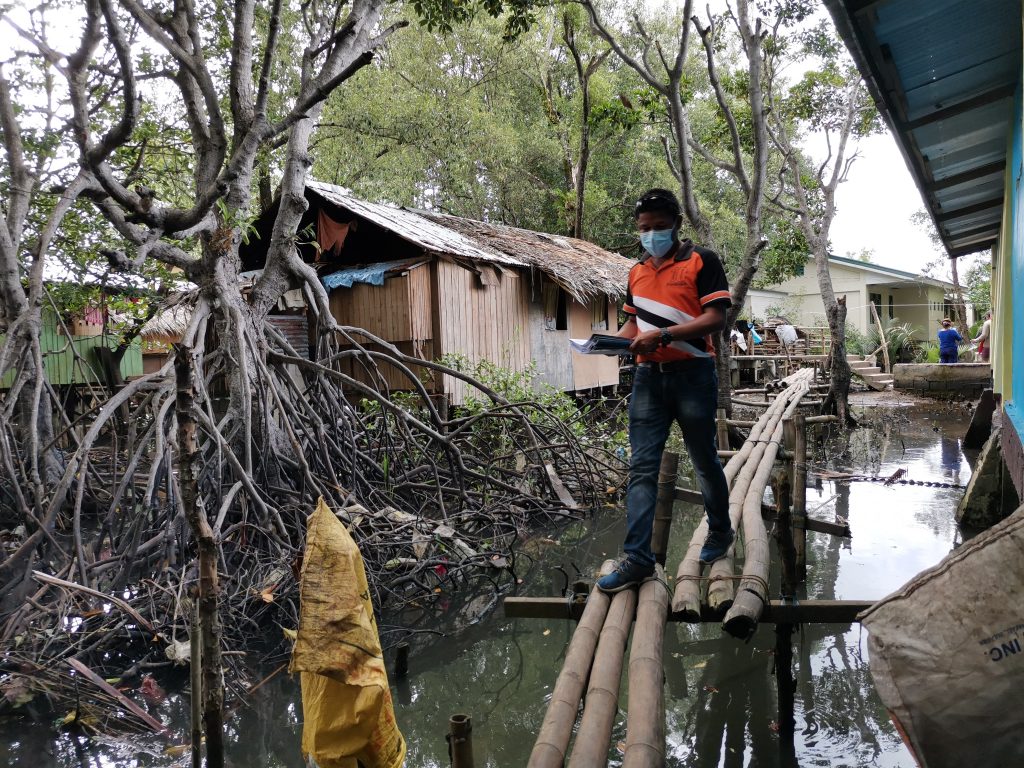
Some teachers in the southern Philippines have to cross the sea, ride the waves, and get wet to be able to bring teaching materials to children in island communities.
Classes opened this week across the country in the midst of the coronavirus pandemic, and without face-to-face classes, children go through various education modalities.
Under the distance learning system, learners take their lessons using printed or digitized modules, online, or through television or radio-based instruction.
Depending on available resources and capabilities, schools are allowed to implement “blended learning” or a combination of two or more learning delivery modalities.
In the southern Philippine region of Mindanao, teachers have to travel by small boats to distribute the learning materials.
For the island communities, the materials are wrapped with plastic bags and placed in sealed plastic containers to prevent it from getting wet.
In the village of Darumawang Bucana, a cluster of islets, 260 learners, from kindergarten to Grade Six, have enrolled this year.
Marvin Geralla, the village head teacher, said about 500 families, or more or less 2,000 individuals, live on several islets of mangroves that comprise the island village.
He said the island have to be divided into seven clusters, or hamlets, where “learning centers” are set up for teachers and the parents to meet weekly for the distribution and collection of learning materials.
“Instead of us going house-to-house, we request the parents to come to the ‘learning center’ to get the modules for their children because it would take us hours,” said Geralla.
“We have to catch up with the tide,” said the school principal. Even small boats cannot travel during low tide.
The teachers have to come from the the mainland of Lala town.

Riding the tide
During “normal times” in the past, they would have to take a 30-minute boat ride through swamps and creeks and into the sea on a motorized boat to reach the school.
The teachers had to pay about US$15 for the daily ride to and from the school. The amount is divided among ten teachers.
Because of the new learning system, their expenses multiplied because each teacher is required to visit weekly all the areas where the children are to distribute and retrieve the learning modules.
The teachers also have to make weekly visits to learners whose parents cannot read and write.
“The challenge does not stop there,” said teacher Rose Ann Bracero.
She said it is difficult to travel during low tide. “What we do is to travel before we are caught with the low tide, so spend more time for work,” she said.
For the teachers not to be late for the eight o’clock classes, they have to leave home at three o’clock in the morning, then again wait for the high tide at the end of the day to be able to go home.
“We cannot afford to be late,” said Bracero. “We are ashamed of the parents who wait for us,” she said.
Cesar Yap Jr., the vice mayor of the town of Lala, has already provided funds to purchase a boat for the teachers.
“This is the immediate solution we can offer,” he said. “With the boat owned by the school, all the teachers have to spend is for fuel and for the operator,” said the government official.

Additional burden to parents
On Saturday, Cristina Dela Cruz, a mother of two, had to share US$0.50 with three neighbors for the boat ride to the “learning center.”
They have to travel for about 45 minutes from their houses on one islet to get to the center and collect the learning materials.
They have to do it weekly from now on.
Dela Cruz said she can manage to teach her children at home, but the problem is getting the learning materials, and the acquisition of a solar-powere radio and other gadgets for the audio lessons.
Her husband, a fisherman, only earns about US$2 a day. “How can we buy the gadgets,” she said.
Rasmila Cosain, senior education program specialist of the Education department, said it is not compulsory for parents to buy the gadgets.
“But it would be a big help,” she added, especially in areas where there is no telephone signal. “If the parents will only depend on the module, it would be hard for them,” said Cosain.
“It is still better for them to have the audio or the video lessons,” she said, adding that it would be difficult for learners not to hear or see the lessons.
Geraldine Bolina, a mother of four, said she will ask her two Grade Six children to help her teach their younger siblings.
Bolina could hardly read of write. She also said that she cannot guide her children because she has to collect shells to sell to earn a living.
School principal Geralla said these problems have already been identified during the “dry run” prior to the opening of classes.
“Teachers will have to work harder because they will teach the parents and they will also teach the children,” he said.
“But we don’t have a choice because it is our job.”
Victory over pandemic
Education Secretary Leonor Briones this week claimed that the Philippine government has become victorious over the pandemic as classes opened in the country.
“Today we celebrate a great victory, we declare our victory over COVID-19 …. We will not allow COVID-19 to destroy our children’s education and their future,” said Briones.
She said education cannot be postponed despite the raging COVID-19 crisis. She urged critics to stop the debates on the decision to start classes.
“There are crisis and constant challenges. Even if it’s hard, we need to do it. We cannot wait any longer. We need to resume classes even if there are challenges,” said the country’s Education chief.
President Rodrigo Duterte congratulated the Education department for finally opening the school year. He said this could be a start of a wider use of online learning even with the end of the pandemic.
“This is a momentous occasion because it is pushing through despite global health crisis due to COVID-19,” said the president.
“(It is) a challenging frontier not only for students and teachers, but also for guardians and parents,” he said in a recorded message on Monday, October 5.
The activist Alliance of Concerned Teachers, however, reported low attendance during the first day of school due to internet connection problems and the lack of access to online learning.
Source: Licas Philippines
0 Comments